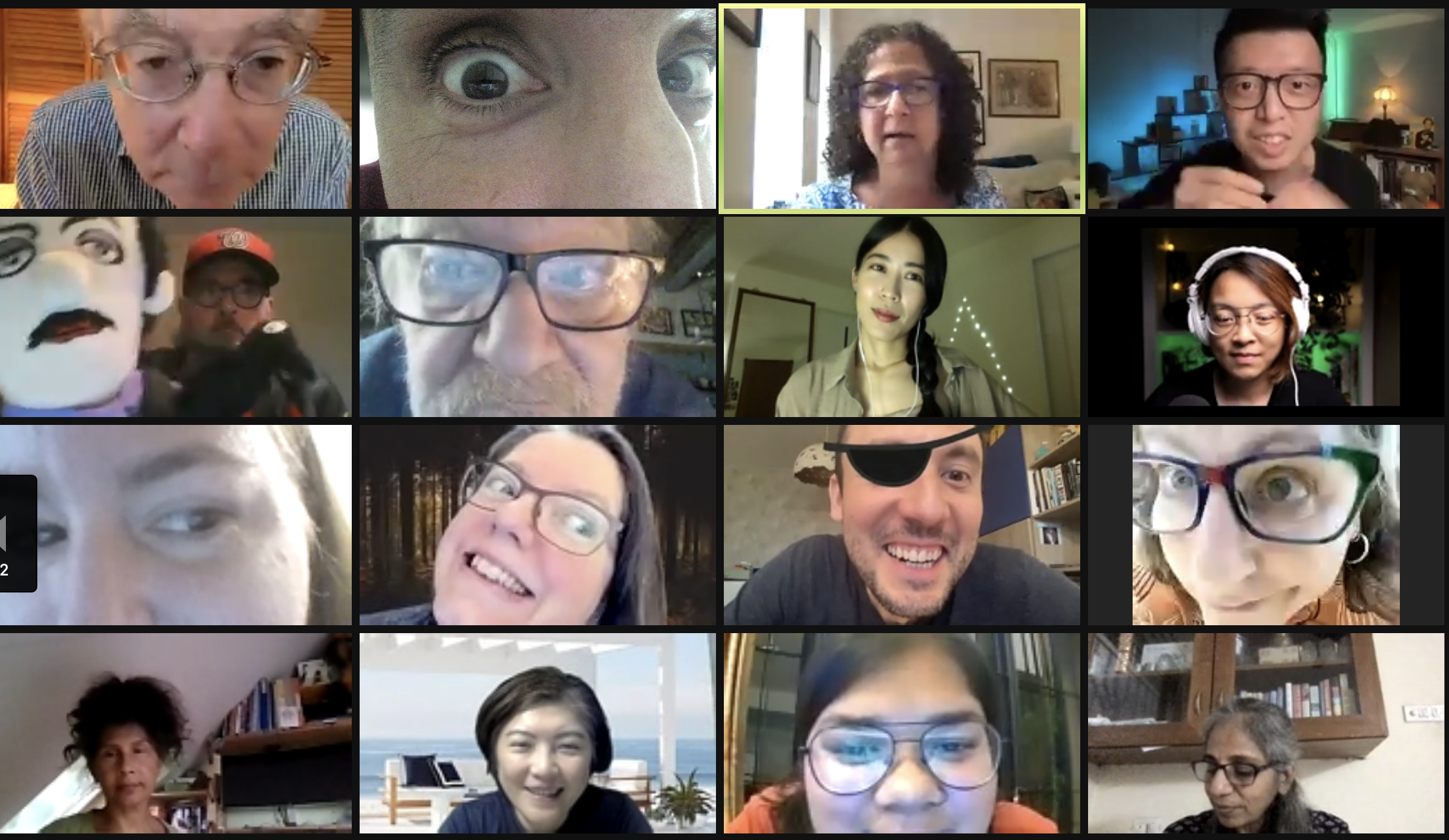
UNC Greensboro has emerged as a national pioneer in the use of improvisation and play to cultivate creative learning environments in support of student success. As a minority-serving institution which prides itself on access and excellence for first-generation and minority students, UNC Greensboro is providing the latest and most innovative work with regards to learning and growth.
The improvisational approach that has been cultivated on campus–most intentionally through Lloyd International Honors College–borrows from the practice of ‘Yes, and’ in improv theater. This is the moment-by-moment human activity of positively building on what others offer. The university has been using play to support students, staff, and faculty development through a combination of professional development workshops, coursework, and improv sessions open to all via Honors. In the sessions, participants become better listeners and empowered in their responses through games that develop people’s creativity.
The approach, which sometimes takes the form of games, is infused in classrooms, labs, and campus life. Over the years, these trainings and activities have positively impacted campus culture in the midst of widespread social, mental health, and other related challenges. In this way, UNC Greensboro may serve as a model to other campuses by demonstrating innovation leading to systemic transformative change for all students.
While other campuses may draw on the power of play in limited spaces (as in schools of theater and dance, and sometimes as ice-breakers for incoming first-year students) UNC Greensboro is using this creative approach in a variety of unprecedented ways and spaces. Improvisation teaches us how to rebound quickly from stumbling, it helps us become better listeners, and therefore learners, better able to handle stress, and it helps us become more effective problem-solvers. As research in psychology and education shows, people are more willing and able to learn when they are open—which play and improvisation helps to enhance. As Shakespeare wrote “All the world’s a stage.” We agree. At UNC Greensboro we take all spaces as performatory spaces, where we (as students, faculty, and staff) can choose how we relate to each other in playful, joyful, new ways for the benefit of all.
Evidence of the power of play at UNC Greensboro comes in multiple forms, including statewide teaching awards, being ranked number one in terms of upward social mobility in the state, national excellence in diversity awards, and a national mental health award for excellence in promoting student well-being. The simple yet powerful pedagogical approach—which enhances and encourages learning—is at the core of some of the most effective teaching among UNC Greensboro’s faculty, including recognition via the Carnegie Foundation Professor of the Year award, the Higher Education Excellence in Diversity award, and being number one in the state, and in the top fifteen in the nation, with regards to social mobility as recognized by U.S. News & World Report. Below are some examples (past and present) of the power of play at the university.
* Monday Play! (improv sessions open to all students, faculty, and staff)
* Speaking Center (role-playing to develop public speaking and presentation skills)
* Self-Design Studio (technology play room in the School of Ed for teachers and students)
* Team QUEST (interactive experiential learning program through Campus Recreation)
*Community Play! (community-based improv, poetry, dance, and other performances)
* UNCG Police-Student improv and play (improv workshops to build bridges between campus police and students)
* University Teaching and Learning Commons (the development of workshops on how to use play and performance in the classroom to enhance learning environments)
* Human Resources Professional Development Workshops (to develop improv skills for the workplace)
*Cech Research Group chemistry lab (using play to build lab team that is developing approaches to study synergy in plant-based medicines)
*School of Nursing Simulation Rooms (learning through role-playing techniques and approaches in improv hospital settings with actors) *Campus Conversations (Chancellor’s Committee on Equity and dialogue)
* Selection of courses that infuse play: School of Education Graduate Counseling; College of Arts & Sciences foreign languages; College of Visual and Performing Arts ensembles; Lloyd International Honors College colloquia and seminars
* Residence Hall improv and games (Grey Hall and North Spencer Hall improv games to counter stress and build community life)
* ‘ASL Idol’ (American Sign Language performance in Professions in Deafness program in School of Education)
* The ‘NanoBus’ (The Joint School for Nanoscience and Nanoengineering Mobile Nanotechnology Education Laboratory playful interactive bus for neighborhood after-school programs)
* Let’s Learn!: The World as Classroom (community-engaged project of the Honors College infusing play into teaching-learning, with partners globally)
READING:
Catie Byrne, “Valentine’s Day Talent Show,” The Carolinian
Lois Holzman, “Become a Vygotskian!” A Conceptual Revolution, Psychology Today
Anya Kamenetz, “What Every School Can Learn From Preschools” National Public Radio Education
Jake Livengood, “Learning from Improv,” Inside Higher Education
Sam McNerney, “What Improv Teaches us About Creativity,” Big Think: Smarter Faster